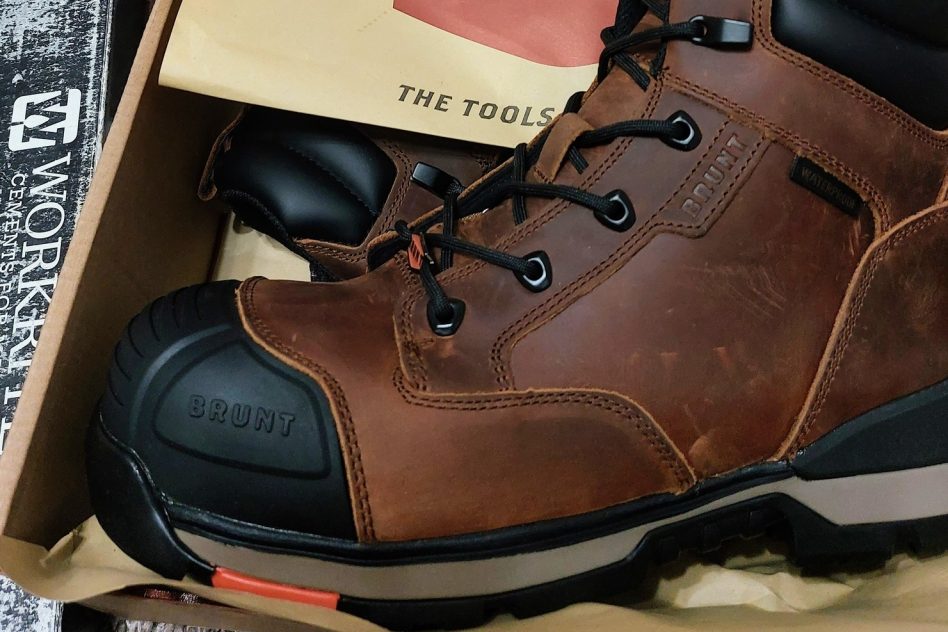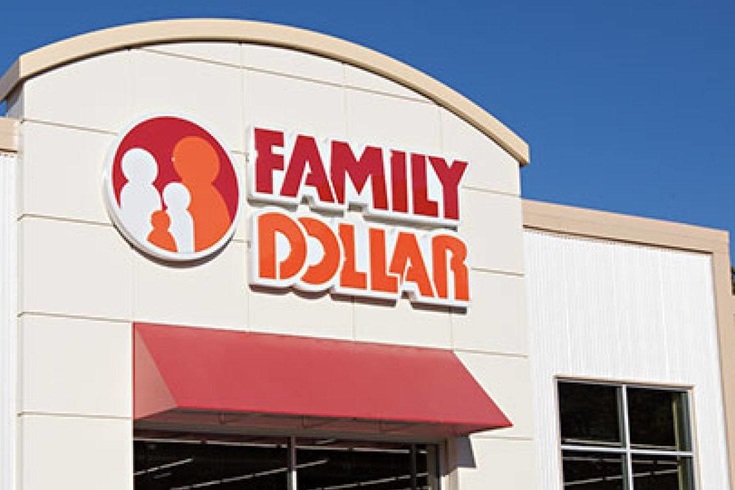
Image source: Brunt Workwear
Brunt Workwear, the popular workwear brand, is now set to officially branch out thanks to its first-ever wholesale endeavor. In the almost four years since Brunt’s initial launch in September 2019, it has solely concentrated its business on direct-to-consumer sales through its website.
Even though the company has established a strong reputation online, its business model is about to see a significant change. Beginning this Thursday, both Brunt’s apparel and footwear will become purchasable in 110 stores throughout the United States, thanks to its new partnership with 23 retailers.
Some of the included stores are Haney Shoes, Workwear Safety, Shoeteria, Blue Collar, Saf-Gard, Trav’s Outfitters, Chuck’s Boots, and Vanderloops. To mark the momentous launch for the company, Brunt has also revamped its patented work boots. Based on feedback from customers, the boots now feature upgrades such as improved cushioning and slip resistance. Roughly 80% of the remodeled boots will be available in these stores, while the other 20% are set to hit shelves by June.
In recent years, Brunt’s sales numbers have surpassed even their best projections. This past Black Friday alone, Brunt sold more than $1 million dollars’ worth of goods, expanding on from the company’s 200% year-over-year growth in 2022. In the past 18 months, Brunt Boots sold out over 15 times on its website.
Thanks to this market expansion into the wholesale arena, Brunt will, in basically one big move, be doubling its business. The company is hailing the move as the biggest moment in its history, and it is easy to see why. The company’s goal going forward will be to achieve a 50/50 split between its wholesale and direct-to-customer (DTC) sales over the next few years. This wholesale model should be a good fit for Brunt, especially with so many active footwear wholesalers such as Dick’s Sporting Goods, Boot Barn, and Bass Pro Shops, to name just a few. Shoppers can now even purchase work boots at Walmart or via Amazon.
It has been revealed that Brunt wanted to move away from being an online-only business over a year ago, but wanted to be careful and not rush the transition. It adopted the do it right and do it slower approach that is so often overlooked in the fast-paced market of today. In October 2023, the change was also aided by the hiring of Chris Heffernan as the company’s new president – as Heffernan had previous experience in building Keen and Timberland Pro’s wholesale businesses.
With the success of Brunt in recent years, many workwear stores were already interested in having the brand on their store shelves. Brunt even invited some of these interested parties to its headquarters in August to discuss business. Eventually, agreements were reached and wholesale partnerships were formed.
As well as agreeing to deals with wholesalers that best meshed with Brunt’s brand, the workwear company also took the location of these stores into consideration, resulting in a wide distribution of outlets spread out throughout the country. For example, one of these outlets is Work World, which has over 20 stores situated exclusively on the West Coast.
This partnership with such an established workwear retailer like Work World, which has been vending brands like Wrangler and Dickies in its stores for decades, will now help to give Brunt equal footing in the industry. This might also help continue the trend that has risen in recent years of smaller DTC brands such as Brunt, Figs, Tilit, and Up In Smoke, gaining even more ground on their more longstanding competitors. By appealing to niche fields like kitchen, hospital, and construction workers, these smaller brands have quickly worked their way up to being major players in these respective markets.
With the success of online businesses in the last few years, many digital-only brands have been reluctant to venture into the wholesale market. Despite the growing online market space, wholesale retailing is still the best way to expand a brand’s distribution and reach, while also remaining relatively cost-effective.
A direct-to-customer business has full control of all facets of its operation, from marketing to production to shipping, but this means it is also responsible for all the difficulties that go along with distribution, returns, and refunds. Wholesaling alleviates some of these problems, however, managing stock will still remain an issue.
Selling wholesale has its challenges. This for example includes the challenge of supplying stores with adequate stock and size variety for customers to try on and potentially buy. To curb this, Brunt has raised its inventory production, but it may still take some time to find the right balance.
Partnering with 23 wholesale retailers also means dealing with countless more requests and requirements when it comes to things like production quotas, deliveries, supply chains, etc. Even smaller matters, like printing specific labels or product barcodes for certain retailer requirements will now be a brand-new undertaking for Brunt.
By all accounts though, Brunt seems more than ready for the new challenges and is excited in its ambition to break into the wholesale marketplace. If things go really well, Brunt has even hinted at opening its own chain of wholesale stores down the line, but this won’t be for at least another few years.

Image source: Brunt Workwear
Brunt Workwear, the popular workwear brand, is now set to officially branch out thanks to its first-ever wholesale endeavor. In the almost four years since Brunt’s initial launch in September 2019, it has solely concentrated its business on direct-to-consumer sales through its website.
Even though the company has established a strong reputation online, its business model is about to see a significant change. Beginning this Thursday, both Brunt’s apparel and footwear will become purchasable in 110 stores throughout the United States, thanks to its new partnership with 23 retailers.
Some of the included stores are Haney Shoes, Workwear Safety, Shoeteria, Blue Collar, Saf-Gard, Trav’s Outfitters, Chuck’s Boots, and Vanderloops. To mark the momentous launch for the company, Brunt has also revamped its patented work boots. Based on feedback from customers, the boots now feature upgrades such as improved cushioning and slip resistance. Roughly 80% of the remodeled boots will be available in these stores, while the other 20% are set to hit shelves by June.
In recent years, Brunt’s sales numbers have surpassed even their best projections. This past Black Friday alone, Brunt sold more than $1 million dollars’ worth of goods, expanding on from the company’s 200% year-over-year growth in 2022. In the past 18 months, Brunt Boots sold out over 15 times on its website.
Thanks to this market expansion into the wholesale arena, Brunt will, in basically one big move, be doubling its business. The company is hailing the move as the biggest moment in its history, and it is easy to see why. The company’s goal going forward will be to achieve a 50/50 split between its wholesale and direct-to-customer (DTC) sales over the next few years. This wholesale model should be a good fit for Brunt, especially with so many active footwear wholesalers such as Dick’s Sporting Goods, Boot Barn, and Bass Pro Shops, to name just a few. Shoppers can now even purchase work boots at Walmart or via Amazon.
It has been revealed that Brunt wanted to move away from being an online-only business over a year ago, but wanted to be careful and not rush the transition. It adopted the do it right and do it slower approach that is so often overlooked in the fast-paced market of today. In October 2023, the change was also aided by the hiring of Chris Heffernan as the company’s new president – as Heffernan had previous experience in building Keen and Timberland Pro’s wholesale businesses.
With the success of Brunt in recent years, many workwear stores were already interested in having the brand on their store shelves. Brunt even invited some of these interested parties to its headquarters in August to discuss business. Eventually, agreements were reached and wholesale partnerships were formed.
As well as agreeing to deals with wholesalers that best meshed with Brunt’s brand, the workwear company also took the location of these stores into consideration, resulting in a wide distribution of outlets spread out throughout the country. For example, one of these outlets is Work World, which has over 20 stores situated exclusively on the West Coast.
This partnership with such an established workwear retailer like Work World, which has been vending brands like Wrangler and Dickies in its stores for decades, will now help to give Brunt equal footing in the industry. This might also help continue the trend that has risen in recent years of smaller DTC brands such as Brunt, Figs, Tilit, and Up In Smoke, gaining even more ground on their more longstanding competitors. By appealing to niche fields like kitchen, hospital, and construction workers, these smaller brands have quickly worked their way up to being major players in these respective markets.
With the success of online businesses in the last few years, many digital-only brands have been reluctant to venture into the wholesale market. Despite the growing online market space, wholesale retailing is still the best way to expand a brand’s distribution and reach, while also remaining relatively cost-effective.
A direct-to-customer business has full control of all facets of its operation, from marketing to production to shipping, but this means it is also responsible for all the difficulties that go along with distribution, returns, and refunds. Wholesaling alleviates some of these problems, however, managing stock will still remain an issue.
Selling wholesale has its challenges. This for example includes the challenge of supplying stores with adequate stock and size variety for customers to try on and potentially buy. To curb this, Brunt has raised its inventory production, but it may still take some time to find the right balance.
Partnering with 23 wholesale retailers also means dealing with countless more requests and requirements when it comes to things like production quotas, deliveries, supply chains, etc. Even smaller matters, like printing specific labels or product barcodes for certain retailer requirements will now be a brand-new undertaking for Brunt.
By all accounts though, Brunt seems more than ready for the new challenges and is excited in its ambition to break into the wholesale marketplace. If things go really well, Brunt has even hinted at opening its own chain of wholesale stores down the line, but this won’t be for at least another few years.



